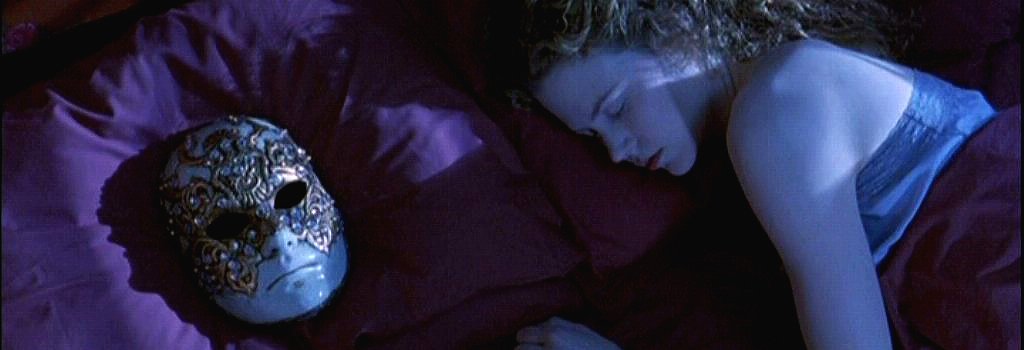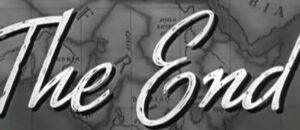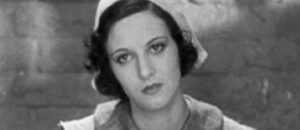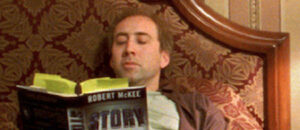Director Steven Soderbergh claims that he’s retiring and that this week’s release of ‘Side Effects’ will be his last theatrical feature. For today’s Roundtable, we look at other famous examples where a director or an actor’s final film (whether due to death or retirement) was a particularly fitting (or not fitting) way to go out.
Luke Hickman
When thinking of a director’s final movie, my thoughts immediately go to Sergio Leone’s ‘Once Upon a Time in America‘, a film that I consider a perfect masterpiece. When it was released domestically, Warner Bros. cut the movie down from 259 minutes to 139, changed the structure of the narrative, and pumped out something well below mediocre. Not until decades later was the original version released stateside. The differences between the two are night and day. I don’t know how he slipped through the cracks, but Leone made it through his career without ever receiving an Academy Award nomination. The domestic theatrical cut of ‘Once Upon a Time in America’ may not have been worthy of that, but had Warner Bros. released his full cut, I’m convinced that the director would have gotten at least one nomination. Only now do we get to see the perfection that he created with his last film.
Mike Attebery
Talk about one tough, insightful movie. ‘Before the Devil Knows You’re Dead‘ would have been an impressive film from a director at any age, but for Sidney Lumet to make this at the ripe old age of 83 is even more impressive. That it turned out to be his final film is sublime.
I’m not a fan of writers and directors who that announce they’re retiring. The way I see it, creative work isn’t strictly a pay-the-bills enterprise. It’s not something you do until you have enough money in the bank, then sit around drinking cocktails and doing who-knows-what ’til you punch out. It’s something you do because you feel the need to say something about life, and whatever the things are that you want to say, you get better at expressing them with age and experience. (This is part of the reason I wonder about John Hughes, who made a bloody fortune at the age of 40 with ‘Home Alone’, seemed to mark time with kiddy slop for the next 18 years, and never directed another film after 1991. That just makes me think he was only ever in it for the money, which is a shame, because he clearly knew a thing or two about life.)
Then there’s Lumet, who released an invaluable book on making movies when he was 72, and kept right on making them – both good and bad – for another decade. As best I know, he never announced that he would retire. If his health had held up, I’m certain that he would have kept on turning out films for as long as he could. Which, actually, is what he did, and his work was all the better for it.
Aaron Peck
I enjoy ‘Family Plot‘, Alfred Hitchcock’s last film, but I can’t help wondering what types of movies he might’ve made after that. With is second-to-last film ‘Frenzy’, it seemed like Hitch was getting ready to embrace darker, more graphic content. Up until that point, he’d been somewhat stymied by the overzealous censors of the day. ‘Family Plot’ felt like an unceremonious end to the career of cinema’s most revered director. After creating such classic suspense pictures as ‘The Birds’, ‘North by Northwest’ and ‘Vertigo’ (recently anointed Best Film Ever), it’s difficult to fathom that Hitchcock ended his illustrious career with an upbeat, humorous mystery. Oh, what I would give to see the kinds of darkly graphic movies he could’ve made after ‘Family Plot’.
Daniel Hirshleifer
For decades, the general view of Stanley Kubrick was that he was a crazy obsessive, taking years and years to put together his projects and then going over schedule on most of them. Word from the set of ‘Eyes Wide Shut‘ told tales of Kubrick spending weeks on single scenes, with Tom Cruise and Nicole Kidman continually returning to the set for reshoots. How appropriate then that the finished product is about a man crazily obsessed with the thought of his wife’s imagined infidelity, which sends him down a rabbit hole of sex, mystery and death. Kubrick’s infamous eye for detail is in prime form, and like the best of his work, the true substance lies below the surface. Unfairly derided at the time of its release (it was foolishly billed as the sexiest film ever made), a look back at it reveals ‘Eyes Wide Shut’ to be one of Kubrick’s most powerful and endlessly fascinating pictures. It’s a fitting swan song for a man who dared to think beyond what anyone else in cinema was doing.
Shannon Nutt
You can’t give a better farewell performance than Henry Fonda did in ‘On Golden Pond‘, his final theatrical release, which nabbed him his first and only Best Actor Oscar. (Fonda also got an honorary Oscar the year prior.) Playing the crotchety yet lovable Norman Thayer alongside fellow Oscar winner Katharine Hepburn, Fonda fills the character with wisdom, humor and the fears of aging/not mattering any more. Although he would appear one more time in the made-for-TV movie ‘Summer Solstice’, Fonda’s big screen goodbye proved to be the perfect cap on a remarkable movie career.
Brian Hoss
Orson Welles’ impact on film (not to mention radio) not only has enduring significance, but seems to grow with each passing year rather than diminish. Remarkable for me as far as his acting is concerned was his incredible screen presence and fine, drama-inducing voice. In the animated film, ‘Transformers: The Movie‘, a threat large enough to eclipse the interplanetary conflict between gigantic robots was needed. That threat took the form of the planet-devouring Unicron, and was voiced by Orson Welles, a performance that concluded days prior to his death. On his last performance and in the days of failing health, Welles is quoted as saying: “You know what I did this morning? I played the voice of a toy. I play a planet. I menace somebody called Something-or-other. Then I’m destroyed. My plan to destroy Whoever-it-is is thwarted and I tear myself apart on the screen.”
Josh Zyber
Robert Altman was a workaholic. The man had a heart transplant sometime during the 1990s and didn’t tell anyone. That didn’t stop him from working steadily, even making one of his greatest films during that period, the masterpiece ‘Short Cuts’. The director’s final film, a narrative adaptation of the (mostly non-narrative) radio program ‘A Prairie Home Companion‘, may not be a masterpiece, but (save for a wretched supporting performance from Lindsay Lohan) it’s a pretty interesting little movie infused with themes of death, mortality, and the struggle to make a lasting significance in your world – all topics that I’m sure weighed heavily on the filmmaker’s mind. At the age of 81, Altman’s health was in such rapid decline that the film’s insurance bonders required that a backup director (Paul Thomas Anderson) stand by on set to complete the picture in case Altman couldn’t do it. As far as I’m aware, Anderson wasn’t needed.
At the time of his death, Altman was still working on pre-production to a (never filmed) new project called ‘Hands on a Hard Body’ (adapted from a documentary about the famous truck-touching competition, sadly not a sequel to the 1984 sex comedy ‘Hardbodies’). While I’m sure that whatever Altman could have done with that would have been interesting in its own right, I think it’s perhaps for the best that he left off where he did.





Ryan M
Mel Brooks’ last film was “Dracula: Dead and Loving It.” Talk about one of your all-time anti-climactic swan songs.
Aaron Peck
This is agonizingly depressing.
Dan Hirshleifer
I love Dracula: Dead and Loving It. No, it’s not Blazing Saddles or Young Frankenstein, or even Robin Hood: Men In Tights, but it’s far funnier than people give it credit for.
Tom Haggas
Well, Mel Brooks is not dead. And I think his amazing work on revival of The Producers should be considered his true swan song, if doesn’t return behind the camera.
Alex
It is a tragedy that Sean Connery’s last film was League of Extraordinary Gentlemen. It isn’t quite as bad as everyone says, and Connery is definitely the bright point, but still, it’s a sad farewell to a true legend.
Mark
For me, it’s Heath Ledger’s performance in the Dark Knight that most meets this category.
Amazing no matter how many times it’s viewed.
Jason
Ledger’s final film was The Imaginarium of Doctor Parnassus.
Mark
I don’t count it as he died before finishing his performance
Mike
I agree on Connery! Assuming the rumor is true, I wish like hell he’d taken the Albert Finney part in Skyfall.
Dan Hirshleifer
I really wish he had taken that part. Finney did nothing for me, and it was clear that role was written for Connery.
BambooLounge
I was so relieved it wasn’t Connery in that role. The whole return to Scotland thing was enough of a wink towards him. If he had appeared on screen it would have been overkill. I like that Skyfall had some subtle shoutouts to the previous Bond films in it, but seeing one of the Bond actors in a supporting role would have bordered on annoying parody.
I love Tarantino films and his “homagism,” but I’d rather never see a Bond film go that route. If I am going to see a Bond film, I want a Bond film, not an homage to Bond films generally. Connery in Skyfall would have been akin to Franco Nero in Django Unchained. It worked in the latter, but would have been unnecessary in the former.
Josh Zyber
AuthorMany people assume that because the character is Scottish, the role must have been written for Connery, but I don’t think so. Connery left the franchise on poor terms with the producers, refused to return in a cameo as Bond’s father when he was approached during the Pierce Brosnan years, and has been very clear that he’s retired from acting. I don’t think anyone ever expected him to play that role. The character was written as Scottish simply as a nod to the fact that the first actor to play Bond was Scottish.
As you say, it would have been unnecessarily distracting for Sean Connery to pop up in a supporting role in this movie. Perhaps one of the sillier entries like Octopussy or Die Another Day might have gotten away with something like that, but it would have broken the (relatively) serious tone that Craig’s movies have established.
Mac
I’m a western fanatic, how about John Wayne and The Shootist?
Lordbowler
I agree. I’m a huge fan of The Duke.
And his last film is ironic in many ways. In The Shootist, Wayne plays an aging gunfighter (roles he was famous for, as well as his only Oscar win) dying of Cancer (as Wayne himself was battling Cancer). He seeks out a doctor, while really planning his own departure on his own terms. A fighter to the end.
I also read his biography and in it, it stated he had a gun next to his hospital bed, as he thought many times about taking his own life. He did not want to waste away and thought he’d rather go out like his good friend Pedro Armendáriz.
But, he realized he couldn’t do that to his fans and instead fought until the end, a mere shadow of his former self.
I recommend watching Maureen O’Hara’s testimony in front of Congress when they commissioned a medal for John Wayne.
Drew
Saying that Ledger’s final film was ‘The Imaginarium of Dr. Parnassus’, means that we have to say that Kubrick’s last film was ‘A.I.’ I’m not sure I’m comfortable with that.
Shannon Nutt
Not really…Ledger was actually IN that movie, Kubrick didn’t shoot one frame of A.I.
Drew
Shannon,
I beg to differ. There’s really no difference at all. Ledger’s scenes were completed by different actors. Kubrick’s film was completed by a different director.
Dan Hirshleifer
Yeah, but Ledger is himself in Dr. Parnassus. Spielberg used some of the pre-production work that Kubrick did, but A.I. is a very Spielberg movie. There’s no confusing it for a Kubrick film.
Chuckee Knowlton
I agree with Shannon, there’s huge difference. While A.I. was originally going to be made by Kubrick, he had very little to do with the making of the film. Looking at this film, I find it hard to believe that Kubrick had ANYTHING to do with it. It’s Spielberg through and through.
Tom Haggas
Gene Hackman.
Welcome to Mooseport.
Enough said.
Alex
Is Welcome to Mooseport really Gene Hackman’s last movie? That makes me want to cry.
Lordbowler
How about Wagons East with John Candy?
Sad that that ended up being his last film.
Conversely, the last film of the rising star Brandon Lee in The Crow. His previous two films were great (Rapid Fire and Showdown in Little Tokyo).
Beerstalker
I thought Canadian Bacon was Candy’s last film, and it is even worse than Wagons East.
Eric Herp
Richard Farnsworth in The Straight Story. It’s a wonderful movie and a great performance by Farnsworth. To see the struggles his character went through to see his brother and then for the actor to kill himself beacuse of terminal cancer was sad.
Brent Umina
They’ve been mentioned already, but Brandon Lee and Heath Ledger both had great last films. The Crow was everything it should have been and The Imaginarium of Dr Parnassus was definitely showing that Heath had all kind of acting chops. Granted, his last FULL performance as The Joker was just hand down his best role, his role in Dr Parnassus was not to be looked down on. I have a special place for Gillium’s films and Dr Parnassus still ranks as one of my favorites.
besch64
If only F for Fake had been Welles’ final effort as director. It would have been the all-time greatest kiss-my-ass drop-the-mic-and-walk-off-the-stage goodbye in history.
http://www.youtube.com/watch?v=zIdUlp3QAsk
Ian Whitcombe
F for Fake *was* his final full-length directorial effort, no? The rest of his credits include shorts and documentaries about him (It’s All True) which incorporate footage from abandoned projects.
Josh Zyber
AuthorF for Fake was his last feature as a director, but I think what besch64 was getting at is that Welles continued to appear in movies as an actor until Transformers.
Jak Donark
Tony Scott was one of my favorite directors and Unstoppable was good, but it seemed like it was a safe paycheck. Where were the guns and girls? I was excited about all the projects he had been working on. Even if some were sequels / remakes (Top Gun 2 and the Warriors remake) he’d done some already with decent results (Beverly Hills Cop 2, Man On Fire, Taking of Pelham 123). He still would have had a great career ahead of him. It’s too bad he made the choice he did, but I wasn’t in his position so I can’t comment one way or the other.
Also I wanted to mention River Phoenix. I haven’t seen his last three credited films ( according to IMBD) but he was an amazing actor and one can only imagine what he would have done. His roles in Stand By Me and The Mosquito Coast, and especially as Young Indy in The Last Crusade are among my favorite all time performances. It’s true, the light that burns twice as bright burns half as long.
Steven Levine
John Frankenheimer’s last theatrical film was the unfairly maligned “Reindeer Games”. I’ve only seen the extended DVD cut (no idea if it was actually Frankenheimer’s cut) and I always thought it was very good, tight and well acted. Also very interesting was Robert Aldrich’s “All the Marbles” with Peter Falk.